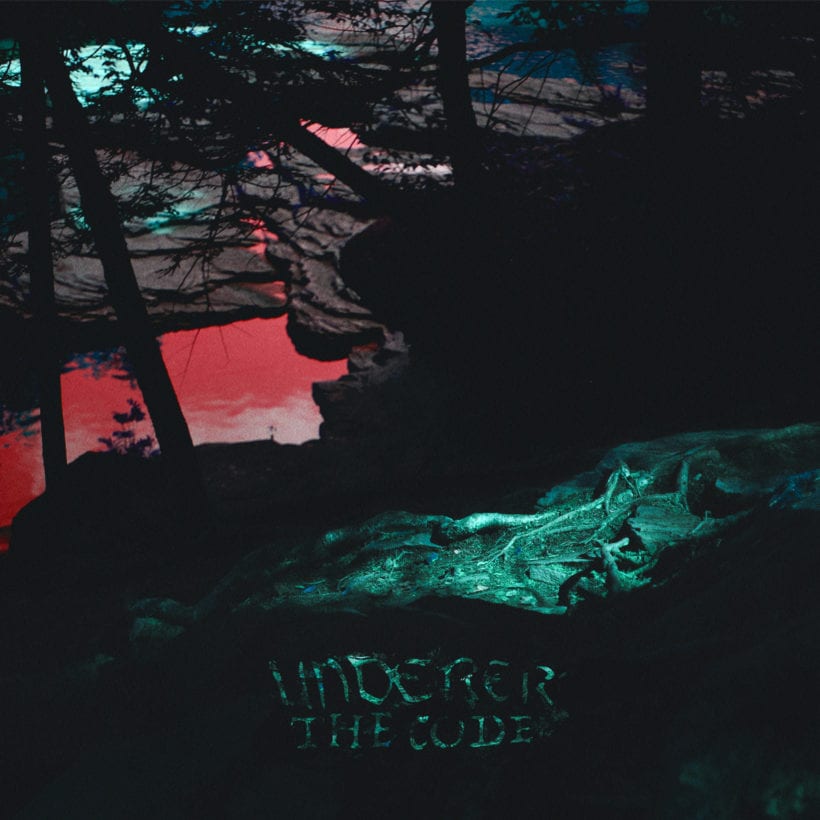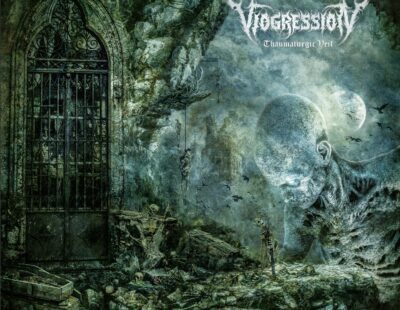
Underer‘s debut album, The Code, is a gloriously chaotic and experimental take on heavy music, informed by the likes of Genghis Tron, Agoraphobic Nosebleed and Swarm of the Lotus. The experimentation is no surprise—Underer is the brainchild and solo project of Nick Shellenberger, the vocalist of Philadelphia avant-garde metal ensemble Cleric.
Everything on the album—save for cymbals on “Marlin,” performed by Krallice’s Colin Marston, who also engineered, mixed and mastered The Code—was written and performed or programmed by Shellenberger; the programmed drums add a robotic precision to the shrieked vocals and other instrumentation, which ranges from minimalist ambient to weirdo grind and bizarre doom.
“The Code is the first collection of cohesive music that I’ve ever written and performed entirely on my own (besides some oddball soundtracks in my 20s), and the time that it took to do so is a fraction of the time that led to that point and the time since,” Shellenberger says. “As such, it’s an interesting glimpse (to me especially) of a very specific window of time during the summer of 2017, in which all of this came to fruition. It was also the first time I allowed things to happen that I didn’t plan for or obsess over, the first time I left my voice and instruments mostly unaffected, and the first time I’ve really spoken about my lyrics in any public way. Musically, I think it captures a chaotic discomfort that I feel much of every day and to have been able to execute that with a lot of intricacy and nuance while maintaining a level of consistent brutality is something I’m really proud of.”
The Code is out this Friday, June 19, but Decibel has the exclusive stream and a track-by-track breakdown of the album—which ranges from topical to historical to metaphorical—below. Listen and purchase a copy through Nefarious Industries. Shellenberger confirmed that all proceeds from the album would be donated to The Okra Project, Black Trans Protestors Emergency Fund, and Unicorn Riot.
“1:19” – The song of the enforcer, tasked with serving justice, happily dragging a violator of The Code to to be buried alive.
“Lady” – This one is a little complicated because, in hindsight, I really have no business writing for women’s experiences and so I’m sure my words here are off the mark in a number of ways. I believe in the intention, however, which was to present a woman that lives for herself and answers to no one, despite the wishes of drooling and despicable men that seek to belittle and conquer her for their own feeble needs. In the wake of the killings of Dominique Fells, Riah Milton and Oluwatoyin Salau, just within the last two weeks, I feel even more strongly about the message of this song, because, in this story, the woman has the power and she gets justice when she is wronged.
“Steven” – Steven is the song of the spider boy, a feral human born with extra limbs who is taken in from the wilderness to perform as the geek of the show, biting the heads off chickens and spinning plates with his many arms. He’s at odds with his safety and comfort within the confines of the carnival, because it has reduced his value to that of a party trick for regular folks who would otherwise shun him and probably try to kill him, and because his life there keeps him from his home in the wild. In essence, it’s about the battle that I think rages in all of us between the comfort and safety of routine and something more real.
“The Wilds” – In Geek Love, the husband and wife who run the show engage in a twisted practice wherein they intentionally disrupt her pregnancies with all manner of drugs and unhealthy shit to encourage birth defects in their children that can later be exploited for the act. This is sort of a reference to that, except that in this version “The Wilds” are the experiments that escaped the confines of the carnival and just run loose on the outskirts, occasionally terrorizing people. Not sure if there’s a metaphor there. Be careful what you wish for? I don’t know.
“Miniature Jimmon” – This song is about the battle between Jimmon, the World’s Tallest Man, and his twisted alter-ego, Miniature Jimmon. It’s rooted in the idea of losing touch with yourself, or sometimes having no real understanding of what or who yourself really is. In the song, Miniature Jimmon is enraged, violent, and abrasive and without concern for the gentle Jimmon, who is often left alone with the consequences. It was inspired by some mental health crises both in my life and in the lives of people close to me and the feeling of losing control.







